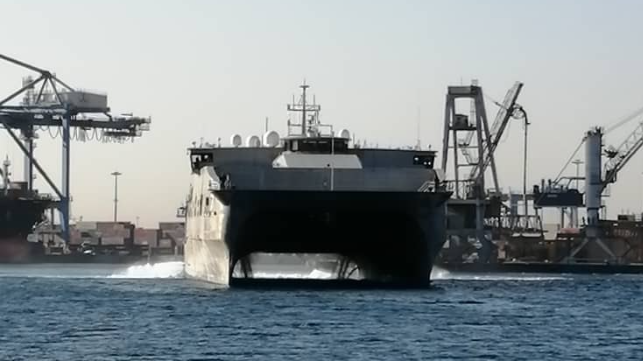As Sudan Reemerges, U.S. and Russia Eye a Strategic Seaport

Within the span of a week, two U.S. Navy vessels have called at Port Sudan, ending a decade-long hiatus. With a change in government, Sudan is putting its history of genocide and repression in the past, opening new opportunities for civilian and military partnership - and not just with the United States.
In 2019, Libya's military leadership overthrew longtime president Omar al-Bashir, ending his 30-year dictatorship. This junta is gradually transferring political control to a joint civil-military council in a three-year transition to full civilian rule.
The new government is a sea change for Sudan, which was a pariah state under its previous management. Beginning in 2003, al-Bashir's government conducted a genocidal campaign against specific tribes in Western Sudan, attempting to terrorize and remove the population. An estimated 100-400,000 people were killed and millions more displaced, according to UN assessments. In 2009, the International Criminal Court indicted al-Bashir on war crimes charges for his role in directing the campaign; the new Sudanese government has agreed to hand over al-Bashir for trial, and talks with the ICC are under way.
With these events in the past, the U.S. has rolled back sanctions on Khartoum and begun to resume military relations. Last week, the expeditionary fast transport USNS Carson City called at the strategic Red Sea seaport of Port Sudan, marking the first U.S. Navy visit to the country in at least 14 years. Carson City’s visit followed a diplomatic mission to Sudan by U.S. Africa Command’s Deputy Commander for Civil-Military Engagement, Ambassador Andrew Young, and its Director of Intelligence, Rear Adm. Heidi Berg.
“We are at a moment of fundamental change in the bilateral relationship between the United States and Sudan, made possible by the efforts of Sudan’s civilian-led transitional government to chart a bold new course away from the legacy of the previous regime,” said Young in a statement.
On Monday, the destroyer USS Winston S. Churchill followed suit, calling in Port Sudan for a reception and tour for Sudanese officials. “In just the past few months, we have already seen an increase in military-to-military engagements," said Rear Adm. Michael Baze, director of maritime headquarters at Navy Africa, U.S. Sixth Fleet.
The U.S. is not the only actor looking to form a strategic partnership with Sudan. Churchill's visit followed just one day after a port call by the Russian Navy frigate Admiral Grigorovich, which is in port for refueling and crew R&R after a series of exercises in the Indian Ocean.
Russia recently reached a 25-year least agreement with Khartoum to build its first naval base in Africa, extending the Russian Navy's network of support facilities into the Red Sea. In exchange, Russia will provide the Sudanese government with access to military equipment.
Russia already has a well-established naval base in the Eastern Mediterranean, thanks to its strong ties with the government of Syrian President Bashar al-Assad; it also occupies Soviet-era installations on the Crimean Peninsula, which was administered by Ukraine until the Russian annexation of Crimea in 2014.
